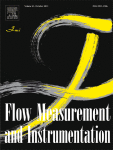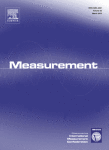
Fake peer reviews are a problem in academic publishing. A big problem. Many publishers are taking proactive steps to limit the effects, but massive purges of papers tainted by problematic reviews continue to occur; to date, more than 500 papers have been retracted for this reason. In an effort to help, Clarivate Analytics is unveiling a new tool as part of the release of ScholarOne Manuscripts, its peer review and submission software in December, 2017. We spoke to Chris Heid, Head of Product for ScholarOne, about the new pilot program to detect unusual submission and peer review activity that may warrant further investigation by the journal.
Retraction Watch: Fake peer reviews are a major problem in publishing, but many publishers are hyper-aware of it and even making changes to their processes, such as not allowing authors to recommend reviewers. Why do you think the industry needs a tool to help detect fake reviews?
Continue reading Can you spot a fake? New tool aims to help journals identify fake reviews

 A company that indexes journals — thereby assigning them impact factors — has chosen to delist a cancer journal after it
A company that indexes journals — thereby assigning them impact factors — has chosen to delist a cancer journal after it  Four hundred eighty-six authors have been found guilty of misconduct by the Chinese government, the fall-out from a sweep of retractions by one journal earlier this year.
Four hundred eighty-six authors have been found guilty of misconduct by the Chinese government, the fall-out from a sweep of retractions by one journal earlier this year.


 Yesterday we reported that
Yesterday we reported that  A computer scientist in Malaysia has lost two papers for faked peer reviews, and another for duplication. A fourth paper on which he is a co-author appears to have simply disappeared.
A computer scientist in Malaysia has lost two papers for faked peer reviews, and another for duplication. A fourth paper on which he is a co-author appears to have simply disappeared.